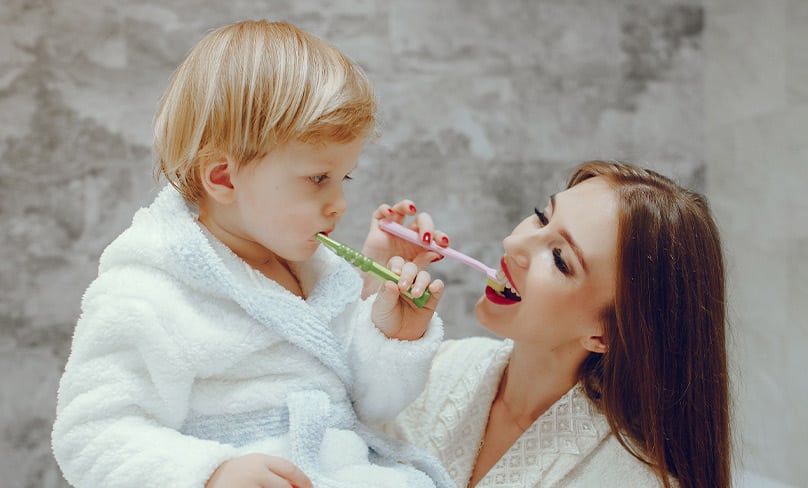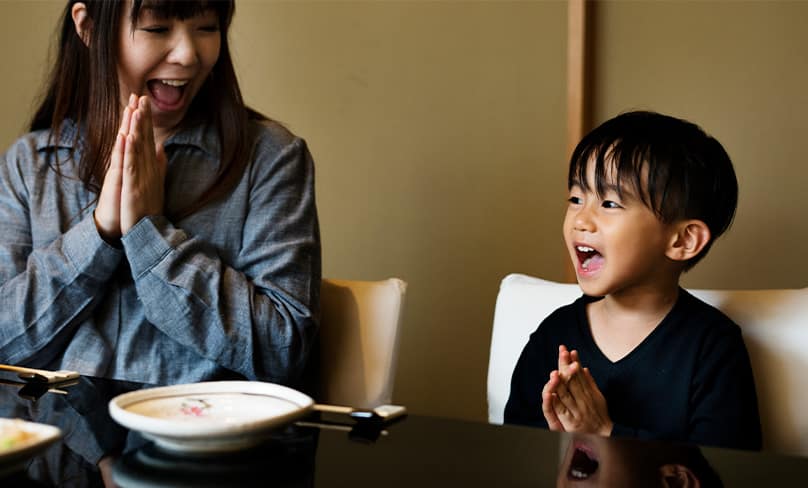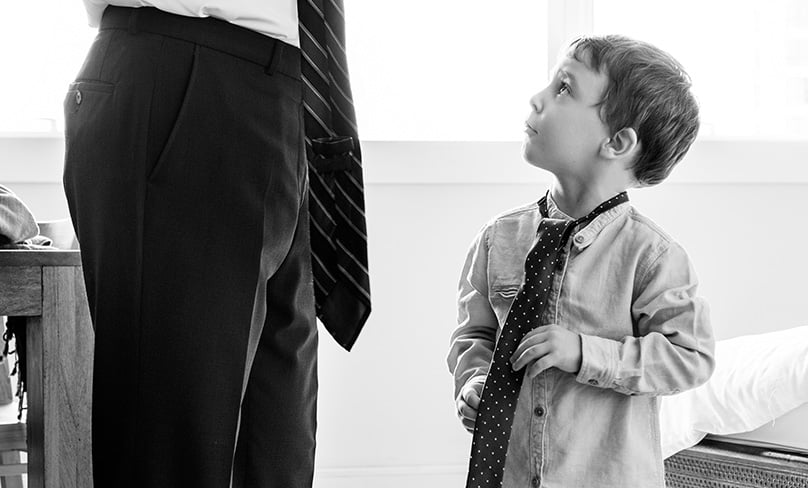
One of the greatest joys priests have in their work is being asked to baptise children.
Like most parishes, we always take time with the parents beforehand to get to know this new family in our parish, to learn how we can best serve their needs, and, obviously, help the family prepare for the baptism.
We usually go over a few areas together. We always take time to find out why the parents would like their children baptised.
We also have a look again at what baptism is: the action of God, acting through his body the Church, reaching down to save the child from the Evil One, remove the stain of original sin, and integrate them into the life of the Holy Trinity – the life of God himself! – as a member of His Body.
One thing some parents tell us they are surprised to learn is that schools, even Catholic schools, are not the principal educators of our children.
We have some truly excellent schools, and parents would have had the experience of encountering some truly marvellous teachers. But no school would suggest they are the main educators of any child.
There is a very simple reason for this: God himself made that choice. He did not entrust the child to the school, or the parish or the priests or consecrated or even the state.

While all these obviously have a responsibility to actively care for and protect children, these do not come remotely close to the centrality of parents as children’s most influential and credible teachers.
The role of the rest of us, including the school, is simply to support the parents in what is the most noble and beautiful vocation in the world.
The way we pray as Catholics reflects this reality. It’s only the parents, and no one else, who twice – in the marriage ceremony, and on the day of the baptism – commit, with God’s infinite help, to educating their children in the Catholic faith. They are the ones God has equipped to do so.
I’m not sure I can overstate this.
In our priestly work we are often accompanying parents who are going through a time of being overly critical, unhappy or anxious about their own parenting skills.
Three fundamental reminders I have always responded with are: you are infinitely loved by God, and have nothing to prove to anyone; whatever it looks like from the outside, there is no such thing as a family without major sufferings and problems; and that in entrusting any child to a parent, God not only gives all the grace needed to be the kind of parent a child needs, but also shows the confidence he has in that person to do so.
Questions are also about the elements specific to a Catholic education. As priests we feel it’s important to stress that as each child is unique, each family also needs to find the ways that best suit their situation.

Being Catholic of course means we can have recourse to certain unique resources that parents can use to help on their journey to raise and educate their children. These include:
• What worked for the parent when they were growing up. What are the Catholic traditions they received which they can pass on to their own children?
• To pray with them daily. Things like a Hail Mary before bed, or a decade of the rosary, singing Christian songs, grace before meals or simply naming prayer needs and saying together an Our Father for them are all opportunities for children to encounter God who is Pure Love.
• Making the most of little occasions to teach them about who God and the Church are, the sacraments, and the Commandments. As Jesus says, the commandments are the foundation of our whole Christian moral life. Examples I’ve seen in families include reading from the Bible at night, accompanying children to confession, and sticking the commandments on the fridge.
• Doing little things together to care for the poor, the elderly, the sick and those on the margins. Examples can include doing Project Compassion as a family, visiting isolated neighbours (or Nanna) regularly, or acts of solidarity with refugees.
• Sunday Mass, where God comes to meet us in his Word, in the Church of the parish community, and above all to give himself totally to us and become part of us in Holy Communion. I’ve seen where this has been enormously helpful, especially where families are struggling or parents are fighting a sense of isolation due to suffering or social/economic/personal circumstances.
• The most important of course doesn’t need to be said because it is the one thing all parents try to do: to love them. As we ourselves experienced, a child’s experience of God’s love is coloured by how our parents loved us. Prayer and the sacraments is an enormous help here: when we are finding it hard and pushed to the limits of our patience and fatigue, we can lean on this supernatural love which helps us go beyond our limits.
Related stories:
